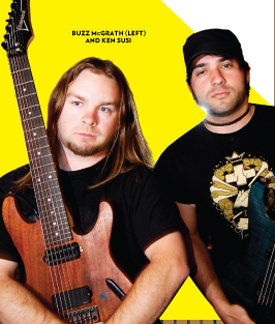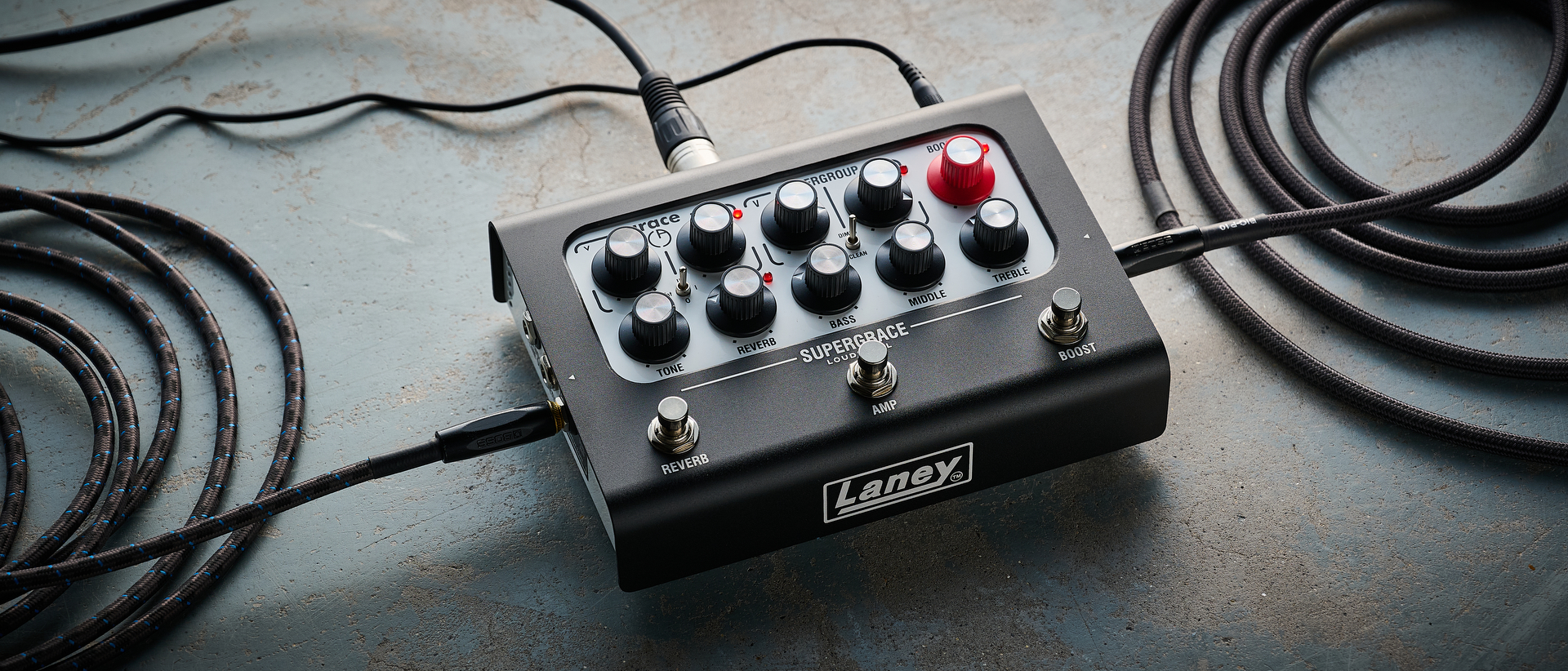The New Guitar Gods: Unearth
All the latest guitar news, interviews, lessons, reviews, deals and more, direct to your inbox!
You are now subscribed
Your newsletter sign-up was successful


The metalcore progenitors hit back with the brilliant and brutal III: In the Eyes of Fire.
For Massachusetts-based Unearth, musical growth means staying ahead of the curve. When they emerged in 2001 with their groundbreaking debut, The Stings of Conscience, Unearth were one of the forefathers of metalcore, combining melodic licks with aggressive riffing in a manner both striking and original. But as the metalcore floodgates opened, Unearth quickly strayed from the flock to developed their own sound. The Oncoming Storm, from 2004, was faster, heavier and less melodic than their prior output. Their new disc, III: In the Eyes of Fire, is even more brutal, combining Swedish death metal and Eighties thrash in a way that’s as fresh as an open wound and sure to keep Atreyu fans at bay.
“We’re not trying to sell hits,” snarls guitarist Ken Susi. “A lot of metalcore bands are going straight from a mosh riff to a bright, shiny chorus to make their music more commercial. I just think if people keep watering down metal with clean vocals, it’s going to be nu-metal all over again. So we went all out in the other direction.”
III: In the Eyes of Fire isn’t just the heaviest record Unearth have written, it’s also their most complex. Instead of segueing blasting riffs straight into chugging breakdowns, Susi and McGrath’s guitar parts rise above and dip below pummeling thrash passages like a drowning man reaching for a life preserver. “We got rid of the slow chugga-chugga breakdowns so we could show how heavy music could get through dynamics,” Susi says. “We’ll play really fast and then hold back and suddenly slam into another part, so everything stays unpredictable.”
“It’s very true to the tradition of great thrash music,” adds guitarist Buz McGrath. “The only problem is some of it is really hard to play. ‘Sanctity of Brothers’ has really intricate picking patterns and gets your wrist all swollen. I kinda have to just stand still when I play it onstage.”
Unearth wrote III: In the Eyes of Fire in three-and- a-half months early this year. Then in March, the band entered the studio with producer Terry Date (Pantera, Deftones), who helped make the music even more bludgeoning. At his urging, Unearth played together as a band, instead of performing to a click track, as they had in the past. Date would record only the drums, creating a foundation for the rest of the members to build upon. “If you play it to a click track, you’re gonna get pretty much the same sound every time,” McGrath explains. “Whereas, if do a breakdown and get a particular groove going as a band, that hits a lot harder.”
One thing separates III: In the Eyes of Fire from most great thrash albums: none of its songs, except “So It Goes,” have guitar solos. “We’ve never been a lead-driven band,” Susi explains with a shrug. “We like to learn really difficult stuff, but the way we do it is by working together to make each riff original and memorable, instead of playing something really easy and then going, ‘Okay, now, you masturbate over there, and then I’ll jerk off over here.’ What we do is more of a team effort.”
All the latest guitar news, interviews, lessons, reviews, deals and more, direct to your inbox!
